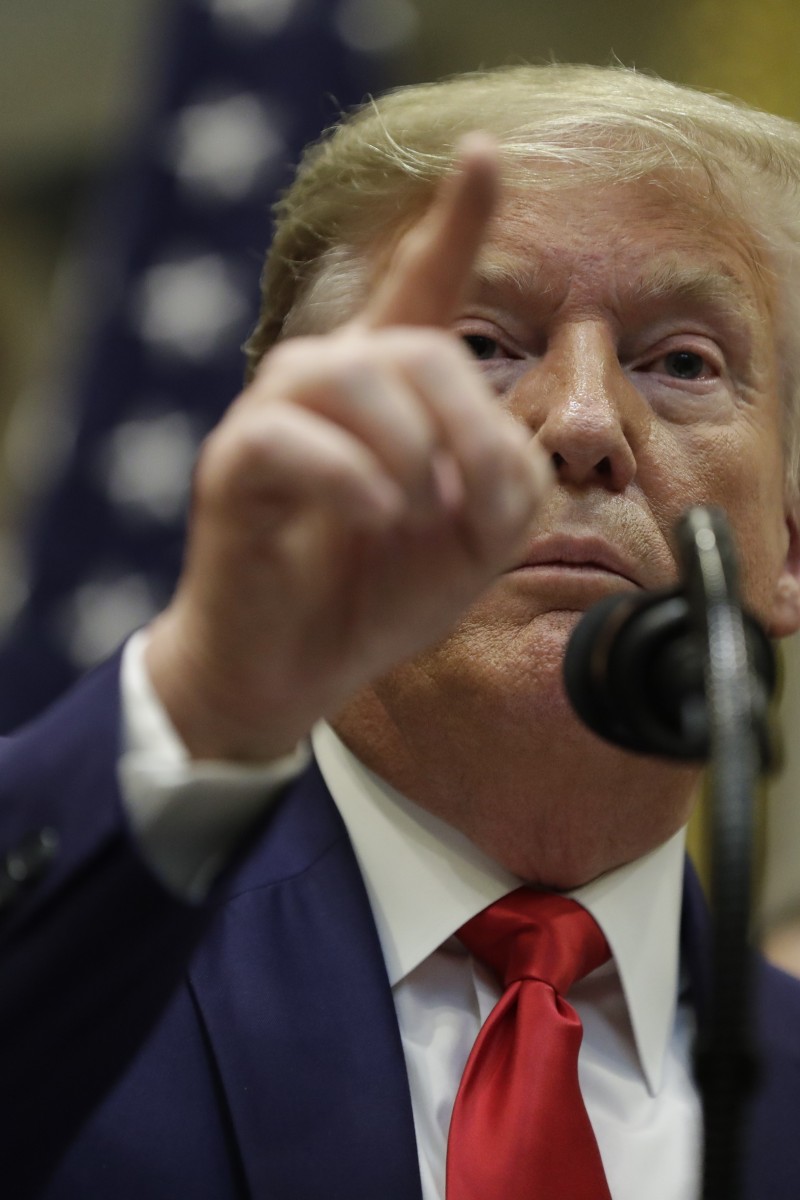
The US President said it would be a 'bad' thing for negotiations and denied reports that he promised Xi Jinping he would stay silent on HK
 Donald Trump takes questions from White House reporters in Washington on Monday.
Donald Trump takes questions from White House reporters in Washington on Monday.US President Donald Trump said that trade talks with China could be impacted if anything "bad" happened with the way authorities are handling anti-govermnment protests in Hong Kong.
Addressing reporters at the White House on Monday, Trump offered no elaboration on what would constitute something “bad”, but he called on Beijing to deal with the protests in a “peaceful” and “humane” manner.
Defying mask ban, tens of thousands of Hongkongers hold weekend demonstrations
“If anything happened bad, I think that would be a very bad thing for the [trade] negotiation[s],” said Trump. “I think politically it would be very tough, maybe for us and maybe for some others and maybe for [Chinese President Xi Jinping]”.
The US leader also denied media reports that he had promised to Xi during a telephone call earlier this year that he would remain silent on the protests in Hong Kong while trade negotiations were ongoing.
CNN reported last week that records of the June call were placed in a highly-classified filing system, limiting the number of White House officials able to access them.
High-level trade negotiations, led on the Chinese side by vice premier Liu He, are set to kick off on Thursday in Washington, days before an increase in US tariffs on US$250 billion of Chinese goods goes into effect.
During Monday’s remarks, which followed the signing of a US-Japan trade deal, Trump went from optimism and pessimism about the likelihood of a deal emerging from those talks.
“We think there’s a chance that we could do something very substantial,” he said in response to a question about whether he expected any new offers from China’s negotiators. Trump said Liu’s team was coming to Washington “to make a deal”.
Trump impeachment: Why is the US president in trouble over a phone call?
Minutes later, however, his forecast of both sides successfully brokering a comprehensive deal this week had changed to “maybe” and then to “probably unlikely”.
Trump’s position on the Hong Kong protests has also been difficult to pin down.